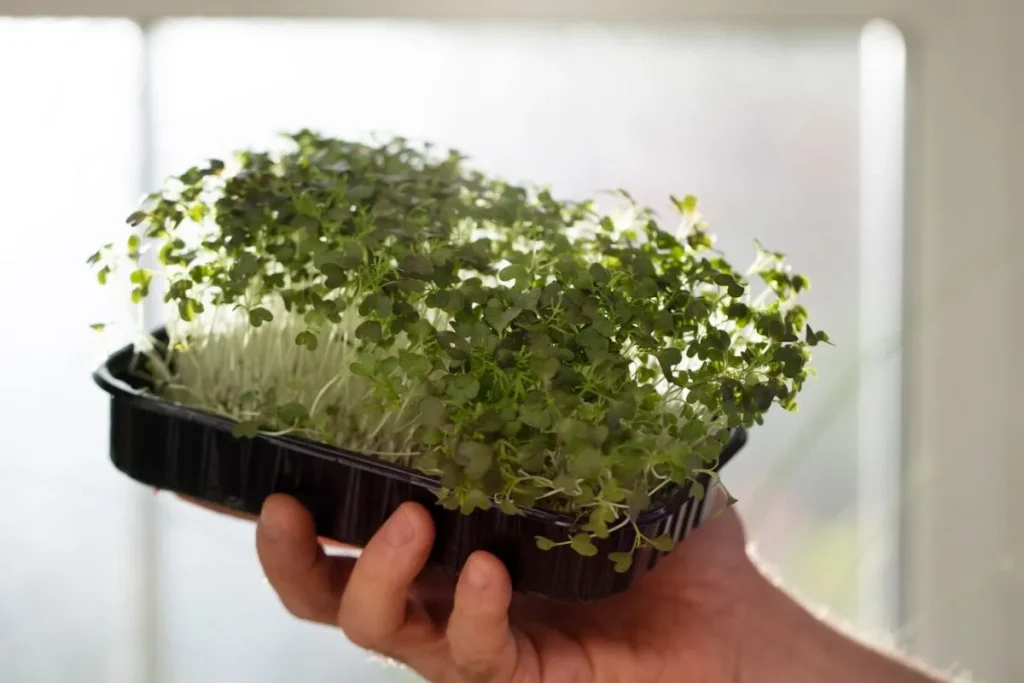Cultivating Chlorella for Nutritional Supplements is an innovative and growing industry. This microalga, rich in nutrients, has become a natural alternative for health and wellness products. Understanding the importance and benefits of Chlorella can revolutionize how we view nutritional supplements.
Chlorella is packed with proteins, vitamins, and essential minerals. Its cultivation is not only beneficial for health but also for sustainability. The commercial cultivation of Chlorella offers numerous applications that contribute to a greener future.
From boosting the immune system to offering detoxification properties, Chlorella is a powerhouse of nutrients. Let’s explore the methods of cultivating Chlorella, its health benefits, and its potential in creating sustainable nutritional supplements.
Cultivating Chlorella: Methods and Techniques
Chlorella is a genus of single-celled green algae. Cultivating it requires specific techniques to ensure optimal growth and nutrient density. Commercial cultivation primarily uses two methods: open ponds and closed photobioreactors.
Open Pond Systems
Open ponds are the traditional method for cultivating Chlorella. These systems are cost-effective and allow large-scale production. However, they are susceptible to contamination and environmental variations.
Advantages of open pond systems include:
- Lower initial setup costs
- Ease of maintenance
- Potential for high yield
This method is best suited for areas with consistent climates. Adjustments in water quality and temperature are crucial to maintaining productivity.
Closed Photobioreactors
Closed photobioreactors offer a more controlled environment. These systems protect Chlorella from contaminants and allow precise regulation of growth conditions. This method ensures higher purity and quality of the algae.
Key benefits of closed photobioreactors:
- Better contamination control
- Optimized growth conditions
- Consistent product quality
Although more expensive, the investment in photobioreactors can yield higher returns through product quality and safety.
Harvesting and Processing
After cultivation, Chlorella is harvested and processed. This step is crucial to preserving its nutrient content. Harvesting methods may include centrifugation or filtration.
Post-harvest processing involves drying and pulverizing the algae into a fine powder. Such processing ensures that Chlorella retains its nutritional properties, making it suitable for supplements.
The Importance of Chlorella in Nutritional Supplements
Cultivating Chlorella for Nutritional Supplements offers a response to modern dietary deficiencies.
Its importance lies in providing a compact source of essential nutrients.
Dense Nutrient Profile
Chlorella contains high levels of proteins, vitamins (such as B12), minerals, and antioxidants. This composition makes it one of the most nutrient-dense food sources available.
Regular intake of Chlorella supplements can support various aspects of health, from boosting energy levels to enhancing immune functions.
Natural Detoxification
Another significant benefit of Chlorella is its ability to detoxify the body. It binds with heavy metals and toxins, aiding in their removal from the system.
This detoxifying property supports liver health and can be beneficial for individuals exposed to environmental pollutants.
Enhancing Digestive Health
Chlorella’s fiber content is beneficial for digestive health. It promotes regular bowel movements and supports a healthy gut microbiome.
Incorporating Chlorella into one’s diet can alleviate common digestive issues such as constipation and bloating.
Benefits of Chlorella for Health and Wellness
The health benefits of Cultivating Chlorella for Nutritional Supplements extend beyond basic nutrition. It plays a vital role in comprehensive wellness and disease prevention.
Boosting Immune System
Chlorella is known to enhance the immune system. It stimulates the production of white blood cells, which fight infections and diseases.
Including Chlorella in your routine can lead to fewer illnesses and a stronger immune defense system.
Anti-inflammatory Properties
Chlorella contains potent anti-inflammatory compounds. These properties can help reduce chronic inflammation and the risk of related diseases, such as arthritis.
Regular consumption can alleviate symptoms of inflammation and improve overall joint health.
Supporting Cardiovascular Health
Chlorella supports cardiovascular health by lowering cholesterol levels and improving arterial function. The antioxidants in Chlorella play a role in reducing oxidative stress.
As a result, it can contribute to reduced risks of heart disease and promote a healthier cardiovascular system.
Commercial Cultivation and Sustainability
Cultivating Chlorella for Nutritional Supplements also offers significant sustainability benefits. Compared to traditional agricultural practices, it has a lower environmental impact.
Efficient Resource Use
Chlorella cultivation uses less land and water than conventional crops. It also has a high growth rate, allowing multiple harvests per year.
Such efficiency makes it a viable solution to address food security and resource conservation issues.
Reducing Carbon Footprint
Chlorella absorbs carbon dioxide during its growth, helping mitigate greenhouse gas emissions. This process contributes positively to the environment.
Integrating Chlorella cultivation into broader agricultural systems can enhance carbon sequestration efforts.
Minimal Chemical Usage
Commercial Chlorella cultivation generally requires fewer chemicals compared to traditional farming. This reduces soil and water contamination.
Adopting Chlorella farming can lead to cleaner agricultural practices and a healthier ecosystem.
Applications of Chlorella Beyond Supplements
Apart from Cultivating Chlorella for Nutritional Supplements, this microalga has various other applications. Its versatility makes it valuable in multiple industries.
Cosmetic Industry
Chlorella is an ingredient in many skincare products due to its antioxidant properties. It helps in reducing signs of aging and promoting skin health.
Its inclusion in cosmetics can enhance the effectiveness of products aimed at rejuvenation and protection.
Animal Nutrition
Chlorella is also used in animal feed to boost the nutritional content. It helps improve the health and growth of livestock and pets.
This application supports the production of healthier animal products such as milk, eggs, and meat.
Biofuel Production
Research is exploring the potential of Chlorella for biofuel production. Its fast growth rate and high lipid content make it a candidate for sustainable energy sources.
Utilizing Chlorella for biofuels can reduce dependency on fossil fuels and support renewable energy initiatives.
The Future of Chlorella in Nutritional Supplements
The future of Cultivating Chlorella for Nutritional Supplements is promising.
Continued advancements in cultivation technology and increasing awareness of its benefits are driving its popularity.
Innovative Cultivation Techniques
Innovation in cultivation methods, such as integrating AI for monitoring and optimizing growth, is enhancing efficiency. These advancements are making Chlorella more accessible.
Embracing these technologies can lead to scalable and sustainable production of high-quality Chlorella.
Expanding Consumer Base
As more people become health-conscious and seek natural alternatives, Chlorella’s market is expanding. Educational campaigns are raising awareness about its benefits.
This growth is setting the stage for Chlorella supplements to become mainstream health products.
Support for Sustainable Diets
Chlorella aligns with the trend of sustainable and plant-based diets. Its cultivation and consumption are environmentally friendly.
Promoting Chlorella as part of a sustainable diet can contribute to global health and environmental goals.
Summary of Key Points
Cultivating Chlorella for Nutritional Supplements offers a nutritious, sustainable, and innovative approach to health and wellness. Key methods of cultivation include open ponds and closed photobioreactors, each with distinct advantages.
Chlorella’s nutrient density, detoxification properties, and support for immune and cardiovascular health make it invaluable. Its benefits extend to digestive health and reducing inflammation.
Commercial cultivation of Chlorella supports sustainability through efficient resource use and minimal environmental impact. Its applications span the cosmetic industry, animal nutrition, and potential biofuel production.
Embracing advanced cultivation techniques, expanding consumer awareness, and aligning with sustainable diets are propelling Chlorella’s future. Understanding these aspects can help in making informed choices about dietary supplements.
If you’re interested in incorporating Chlorella into your diet, consider exploring high-quality nutritional supplements available in the market. Stay informed about the latest innovations and benefits to enhance your health and well-being.
Frequently Asked Questions
What is Chlorella?
Chlorella is a single-celled green alga known for its high nutrient content, including proteins, vitamins, and minerals.
How is Chlorella cultivated?
Chlorella is cultivated in open pond systems or closed photobioreactors, each offering unique benefits for production.
What are the main health benefits of Chlorella?
Chlorella supports immune function, detoxification, digestive health, and has antioxidant and anti-inflammatory properties.
Is Chlorella sustainable?
Yes, Chlorella cultivation is sustainable, requiring less land and water, with minimal chemical usage and potential for carbon sequestration.
Can Chlorella be used beyond nutritional supplements?
Chlorella is used in cosmetics, animal nutrition, and is being researched for biofuel production due to its versatile properties.



